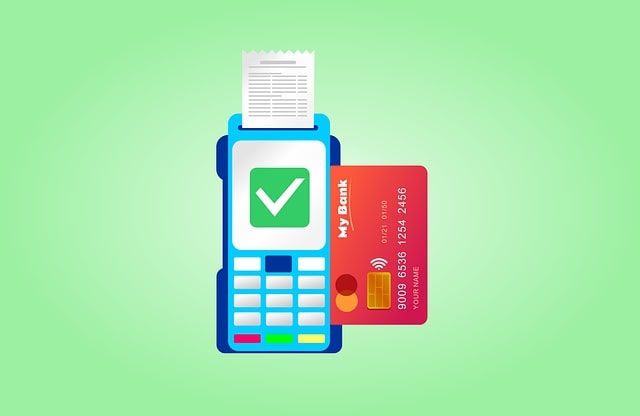For many college students, getting a first credit card is a major step toward financial independence. Used wisely, student credit cards can help build credit, earn rewards, and encourage responsible spending habits. Establishing credit history early makes it easier to qualify for loans, apartments, or even jobs after graduation. With the right card, students can also gain valuable perks, save money on fees, and start learning how to manage credit responsibly.
In this comprehensive guide, we’ll review the best student credit cards, explain what makes them valuable, and show you how to avoid common pitfalls like credit card debt. We’ll also cover the differences between student cards and secured cards, offer tips on maximizing rewards, and share advice for what to do with your credit card after graduation.
Quick Comparison: Best Student Credit Cards
| Credit Card | Annual Fee | Rewards | Sign-Up Bonus | Foreign Transaction Fees |
|---|---|---|---|---|
| Bank of America Travel Rewards | $0 | Unlimited travel points | None | None |
| Capital One Savor Student Cash Rewards Card | $0 | 8% back on entertainment | $50 early spend bonus | None |
| Discover it Student Chrome | $0 | Rotating bonus categories | Unlimited Cashback Match | None |
| Chase Freedom Rise | $0 | 1.5% back on all purchases | None | 3% |
| Firstcard Secured Credit Builder Card | Varies | Build credit | None | None |
| Self Visa Credit Card | $0 intro fee | Secured credit builder card | None | Varies |
| Grow Credit Mastercard | Membership fee | Build credit via subscriptions | None | None |
What to Look for in a Credit Card for Students

The best credit cards for students usually come with no annual fee, making them affordable to keep long-term. Many also provide cash back rewards on everyday purchases like groceries, gas, or dining out. Others include sign-up bonuses such as a small statement credit or early spend bonus to encourage responsible use. If you plan to study abroad, look for cards with no foreign transaction fees so you won’t pay extra on international purchases. It’s also smart to choose a card that reports to all three major credit bureaus and may offer an automatic credit limit increase over time. These features ensure your positive payment history is recorded and your credit profile strengthens as you gain experience.
Best Credit Cards for College Students
Bank of America Travel Rewards for Students

The Bank of America Travel Rewards card charges no annual fee and no foreign transaction fees. Students earn points on every purchase, and those points can be redeemed for travel or dining. It’s a great fit for students who travel frequently, especially those studying abroad. With a broad network and flexible redemption options, this card provides long-term value even after graduation.
Capital One Savor Student Cash Rewards Card
Capital One designed this card specifically with students in mind. It offers 8% cash back on entertainment and dining purchases, making it ideal for social outings. There’s also a $50 bonus after you spend $100 in the first three months. The card has no annual fee, no foreign transaction fees, and a reputation for accessible approval. For students who like dining out and attending events, this card stands out as a rewarding option.
Discover it Student Chrome
The Discover it Student Chrome card has no annual fee and no foreign transaction fees. It features rotating bonus categories with quarterly maximums, which can include grocery stores, gas stations, or dining. Plus, Discover offers Unlimited Cashback Match during the first year, effectively doubling all the cash you earn. This feature is particularly appealing for students making everyday purchases. Since no credit history is required, it’s also a strong starter card.
Chase Freedom Rise
The Chase Freedom Rise is designed for students with little or no credit history. Cardholders earn 1.5% cash back on all purchases, making it straightforward and simple to use. However, it does charge a 3% foreign transaction fee, which may limit its usefulness for students who plan to travel abroad. Chase is a major issuer, so the opportunity to upgrade into other Chase products later on is an additional advantage.
Firstcard Secured Credit Builder Card
Firstcard is a secured credit card option tailored for international students. Applicants can use a passport or visa to apply, and no credit check is required. To open the account, you’ll need a Firstcard bank account and a refundable security deposit. The card provides a reliable way for students without U.S. credit history to build credit responsibly. It’s a straightforward path toward establishing a financial footprint in America.
Self Visa Credit Card

The Self Visa Credit Card is another option designed to help students build credit. It starts with a small security deposit linked to a savings account. The card has a $0 intro fee and helps cardholders establish credit history while also setting aside money in savings. Over time, users may qualify for an upgrade to a traditional unsecured card. For students with limited financial resources, this dual purpose—credit building and savings—is particularly valuable.
Grow Credit Mastercard
The Grow Credit Mastercard takes an innovative approach. Instead of requiring a deposit, it allows students to build credit by paying for monthly subscriptions such as Netflix or Spotify. Although a membership fee applies, this card is especially useful for students who regularly use subscription services. It’s an unconventional but effective option for those looking to start a credit history without a traditional deposit.
Why Building Credit as a College Student Matters
A good credit score can open doors in ways students might not expect. It’s not just about getting approved for credit cards—it also impacts car loans, rental applications, and even certain job opportunities. Some employers check credit reports during hiring to gauge financial responsibility. Landlords may rely on credit history to decide whether to approve a lease. In addition, building credit early improves your odds of qualifying for balance transfers and higher credit limits later on. Establishing solid credit habits in college can help you avoid relying on secured cards in the future.
Student Credit Cards vs Secured Cards

Student credit cards are unsecured and built for those with limited credit history. They usually offer modest credit limits but do not require a deposit. Secured cards, by contrast, require a refundable security deposit that acts as collateral. While easier to get approved for, secured cards often come with fewer rewards. Both types of cards report to major credit bureaus, ensuring your activity helps build credit. Understanding the difference between these two types of cards can help students choose the best option for their circumstances.
Maximizing Your Student Credit Card Benefits
To get the most from a student credit card, always pay your balance on time and in full. This prevents interest charges and demonstrates financial responsibility to credit card issuers. Keep your spending under 30% of your credit limit to maintain a healthy credit score. Use rewards for essential purchases like groceries or school supplies. Some cards also offer perks such as statement credits, fraud protection, or monitoring services, which can add extra value. The key is to align your card choice with your lifestyle. For instance, a student who travels often may benefit from a travel rewards card, while one who eats out regularly may prefer a dining-focused card.
Responsible Spending & On-Time Payments
Budgeting is crucial to avoid credit card debt. Creating a budget and sticking to it keeps your spending under control and ensures you can pay your bill. On-time payments are the single most important factor in building a good credit score. Consider setting up automatic payments to avoid missed due dates. Even paying the minimum balance on time is better than paying late, but paying in full ensures you never carry debt. Over time, these habits will create a solid credit profile that benefits you long after college.
Alternatives if You Can’t Get Approved
If you can’t qualify for a student card, there are still ways to start building credit. Secured cards with a small deposit are widely available and often have simple approval requirements. Becoming an authorized user on a parent’s card allows you to benefit from their established credit history. Some issuers also offer programs specifically for immigrants or students attending other higher education institutions, which may rely on alternative criteria instead of a traditional credit check. Exploring these alternatives ensures that every student has an opportunity to begin building credit.
What to Do With Your Student Card After Graduation
Your student card doesn’t disappear once you graduate. In fact, keeping it open can help lengthen your credit history and boost your score. Many issuers allow you to upgrade to a higher-reward card with a better credit line once you’ve established responsible use. If your spending patterns change, you may also consider switching to a balance transfer card or one that offers more travel benefits. Closing your oldest card can hurt your score by reducing the average age of your accounts, so avoid doing so unless necessary. Treat your student credit card as the foundation of your long-term financial journey.
FAQs
Yes, but if you’re under 21, you may need to show proof of income or have a co-signer. Some credit card companies will also consider other sources of income such as scholarships or allowances.
Some issuers will upgrade you to a non-student version or allow you to request one. Others may offer an automatic credit limit increase once you have a solid credit history.
You must be at least 18. Applicants under 21 generally need proof of income or a co-signer, in line with federal regulations.
Yes. Cards like Firstcard and certain secured cards are designed for international students. Some credit card issuers also partner with universities to make the process easier for non-U.S. residents.
Conclusion
The best student credit cards can help college students build credit, earn rewards, and avoid unnecessary fees. Choosing a card with no annual fee, transparent interest rates, and benefits that match your lifestyle sets you up for a strong financial future. From travel cards like Bank of America’s option to secured cards designed for international students, there’s a product for every type of college student. Building credit responsibly now will open doors to better cards, higher limits, and financial opportunities down the line.
Ranking of Top Stock Newsletters Based on Last 3 Years of Stock Picks as of December 27, 2025
We are paid subscribers to dozens of stock and option newsletters. We actively track every recommendation from all of these services, calculate performance, and share our results of the top performing stock newsletters whose subscriptions fees are under $500. The main metric to look for is "Return vs S&P500" which is their return above that of the S&P500. So, based on December 27, 2025 prices:
Best Stock Newsletters Last 3 Years' Performance
| Rank | Stock Newsletter | Picks Return | Return vs S&P500 | Picks w Profit | Max % Return | Current Promotion |
|---|---|---|---|---|---|---|
| 1. |  Alpha Picks | 82% | 56% | 76% | 1,583% | VALENTINE'S SALE: SAVE $75 NOW |
| Summary: 2 picks per month based on Seeking Alpha's Quant Rating; consistently beating the market every year since launch; tells you when to sell and they have sold almost half. See complete details in our full Alpha Picks review. Or get their Premium service to get their QUANT RATINGS on your stocks to better manage your current portfolio--read our Is Seeking Alpha Worth It? article to learn more about their Quant Ratings. | ||||||
| 2. |  Zacks Value Investor | 60% | 40% | 54% | 692% | February Promotion: $1, then $495/yr |
| Summary: 10 stock picks per year on January 1st based on Zacks' Quant Rating; Retail Price is $495/yr and includes 6 different services including those below. Read our Zacks Review. | ||||||
| 3. |  Moby.co | 50% | 16% | 74% | 2,569% | February Promotion: Next pick free! |
| Summary: 60-150 stock picks per year, segmented by industry; consistently beating the market every year; retail price is $199/yr. Read our full Moby Review. | ||||||
| 4. |  Zacks Top 10 | 36% | 15% | 71% | 170% | February Promotion: $1, then $495/yr |
| Summary: 10 stock picks per year on January 1st based on Zacks' Quant Rating; Retail Price is $495/yr and includes 6 different services. Read our Zacks Review. | ||||||
| 5. |  TipRanks SmartInvestor | 20% | 9% | 62% | 464% | Current Promotion: Save $180 |
| Summary: About 1 pick/week focusing on short term trades; Lifetime average return of 355% vs S&P500's 149% since 2015. Retail Price is $379/yr. Read our TipRanks Review. | ||||||
| 6. |  Action Alerts Plus | 27% | 5% | 66% | 208% | Current Promotion: None |
| Summary: 100-150 trades per year, lots of buying and selling and short-term trades. Read our Jim Cramer Review. | ||||||
| 7. |  Zacks Home Run Investor | 5% | -0.4% | 45% | 241% | February Promotion: $1, then $495/yr |
| Summary: 40-50 stock picks per year based on Zacks' Quant Rating; Retail Price is $495/yr. Read our Zacks Review. | ||||||
| 8. | Dogs of the Dow Strategy | 16% | -1.8% | 43% | 44% | Current Promotion: None |
| Summary: Buy the 10 highest yielding dividends stocks in the Dow Jones Industrial Average on January 1st and sell on Dec 31st each year. | ||||||
| 9. | IBD Leaderboard ETF | 11.4% | -1.8% | n/a | n/a | February Promotion: NONE |
| Summary: Maintains top 50 stocks to invest in based on IBD algorithm; Retail Price is $495/yr. Read our Investors Business Daily Review. | ||||||
| 10. |  Stock Advisor | 34% | -3.9% | 75% | 289% | February Promotion: Get $100 Off |
| Summary: 2 picks/month and 2 Best Buy Stocks lists focusing on high growth potential stocks over 5 years; Retail Price is $199/yr. Read our Motley Fool Review. | ||||||
| 11. |  Zacks Under $10 | -0.2% | -4% | -4.3 | 263% | February Promotion: $1, then $495/yr |
| Summary: 40-50 stock picks per year based on Zacks' Quant Rating; Retail Price is $495/yr. Read our Zacks Review. | ||||||
| 12. |  Rule Breakers | 34% | -5.1% | 69% | 320% | Current Promotion: Save $200 |
| Summary: Rule Breakers is included with the Fool's Epic Service. Get 5 picks/month focusing on disruptive technology and business models; Lifetime average return of 355% vs S&P500's 149% since 2005; Now part of Motley Fool Epic. Read our Motley Fool Epic Review. | ||||||
| Top Ranking Stock Newsletters based on their last 3 years of stock picks covering 2025, 2024, and 2023 performance as compared to S&P500. S&P500's return is based on average return of S&P500 from date each stock pick is released. NOTE: To get these results you must buy equal dollar amounts of each pick on the date the stock pick is released. Investor Business Daily Top 50 based on performance of FFTY ETF. Performance as of December 27, 2025. | ||||||
